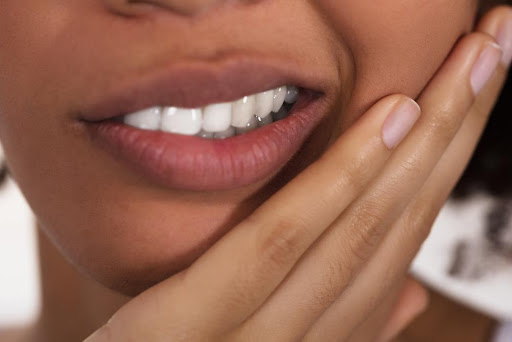Cavities are a pesky reality which most of us have experienced at some point throughout our lifetime. According to recent studies; approximately ninety percent of people over the age of twenty have become personally familiar with at least one cavity, and an estimated one quarter of all adults currently have a cavity somewhere in their smile. Are Cavities Contagious
This form of tooth decay is commonplace amongst the general population, and thankfully may be easily remedied through professional intervention. In the United States alone, close to two hundred million cavity fillings are performed annually!
With that being said, the danger of cavities should not be overlooked as tooth decay is no laughing matter.
The Common Cavity
Cavities occur when the teeth and gums aren’t routinely brushed and flossed effectively enough to ward off harmful bacteria, which eats away at the teeth’s precious enamel as it accumulates. Forming as a hole on the enamel surface, the longer it’s left unchecked the further a cavity will penetrate into the more sensitive layers within the tooth. The frequent symptoms of swelling, sensitivity, pain, discoloration, and even bad breath will worsen overtime.
“If you’re telling me I have to brush twice and floss once a day to avoid tooth decay, I know this already”, you might be thinking. While yes, that is an undeniable truth, cavities may still arise through means most dental patients may be unaware of.
Catch Me If You Can
You may be surprised to learn that cavities are actually contagious! While the Covid-19 pandemic has consumed all of our attention regarding transmissible bacteria throughout the past few years, it’s important to recognize bacteria being passed along from one body to another is an inescapable part of human life- and this includes cavities!
Researchers have identified that the bacteria which specifically causes cavities (streptococcus mutans) can seamlessly transfer from one person to another, even if the latter’s current oral health wouldn’t typically lead to a native cavity forming.
Common activities among close or intimate relationships like biting from the same fork, sipping from the same glass, and especially kissing, all act as mediums for bacteria to be transferred through saliva. This process is very similar to how cold sores are commonly gifted from one close friend, family member, or romantic partner to another. Additionally, babies and younger children are more vulnerable to this process, as they typically contain more of this bacterium than the typical adult.
While cavities are infamously tied to the personal responsibility of the individual patient, this is not the entire picture. Many smiles practice a routine and effective at home oral care regimen and participate in their routine checkups, yet still may fall victim to this bacteria transfer thanks to a loved one!
With this knowledge in mind, let’s dissect the best methods to avoid catching a cavity. Are Cavities Contagious?
Preventative Measures
It’s important to be mindful of all the potential risks to swapping saliva with someone, whether directly or indirectly. Try to restrict taking bites of the same food, sharing Chapstick, and so on, as streptococcus bacteria thrive in these situations. If you plan on kissing a romantic partner, it’s recommended you both thoroughly brush and floss your teeth beforehand.

While saliva is the medium which transfers this bacterium, it poetically remains the best defense to it as well! The more salivated our mouths remain, the more capable we are to naturally wash away harmful bacteria living amongst our teeth and gums. Some of the best methods to bolster saliva production are the following;
- Drinking Water: And lots of it! Water intake is fundamental to ensuring our body is healthy and keeps our salivary glands flowing in an ideal manner.
- Chewing Gum: The motion provided by chewing gum produces ample saliva! Try to keep it sugar free, choosing brands with artificial sweeteners like Xylitol which assists in cavity prevention. A maximum of three times a day is the professional recommendation.
- Mouth Rinse: Inquire with your dental professional about ideal mouth rinses to utilize. As some are prescribed after a cavity is spotted in its early stage of development, effectively halting this decay’s progression.
- Use Your Mind: Not just a figurative expression. This little mind hack is super neat; try thinking about eating food. This usually hijacks the brain to start producing saliva in anticipation of a meal, especially something you’re craving.
Lastly, its crucial to not only brush and floss at the recommended rate, but participate in semiannual routine checkups with your dentist. This gives a knowledgeable professional the ability to track your smile’s health and potentially catch cavities in their earlier stages before they require a filling or lead to more severe tooth decay.
If you seek more knowledge about cavities and their development, or believe you may be suffering with one at the moment, please reach out to our office today!





















